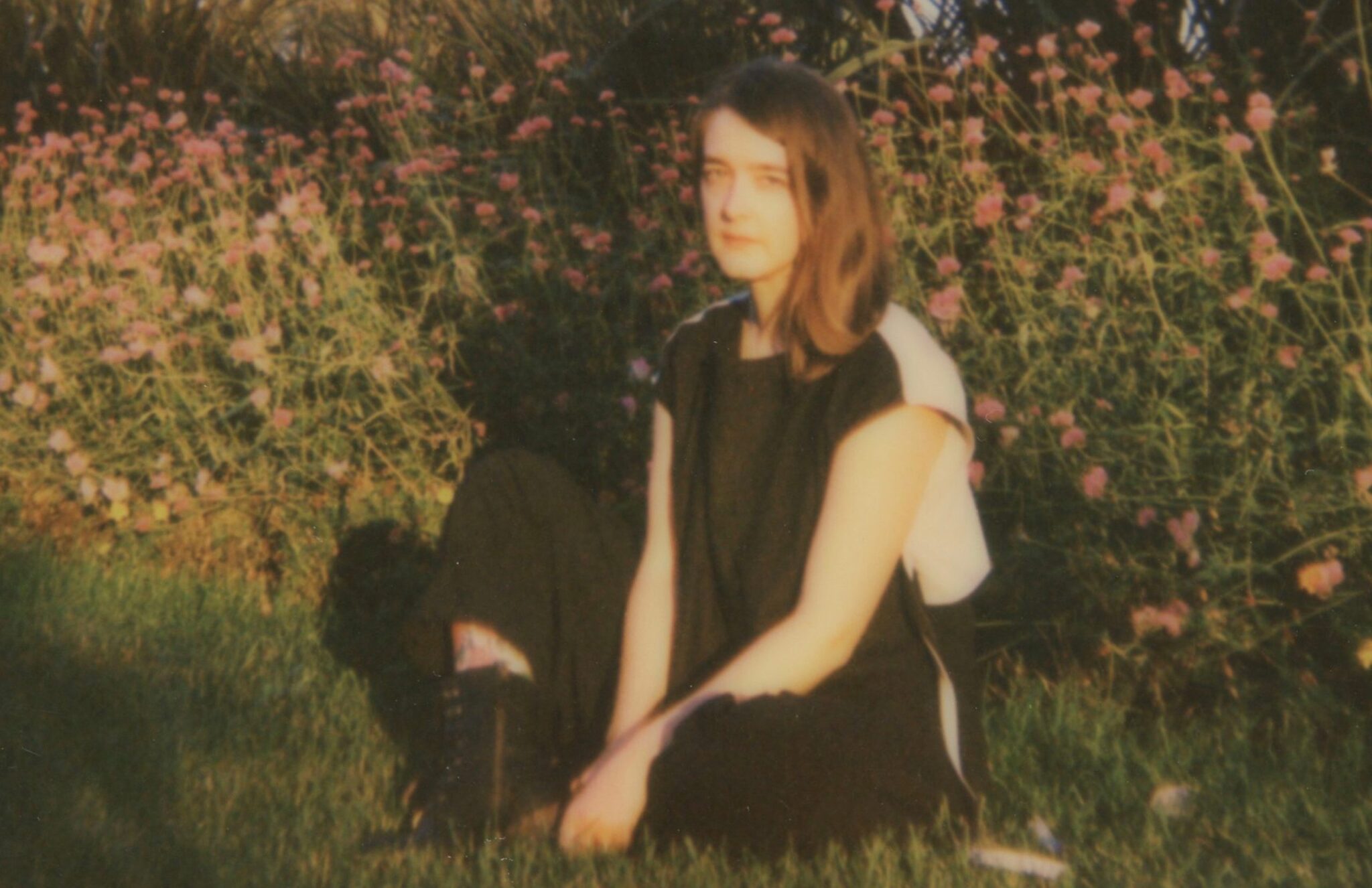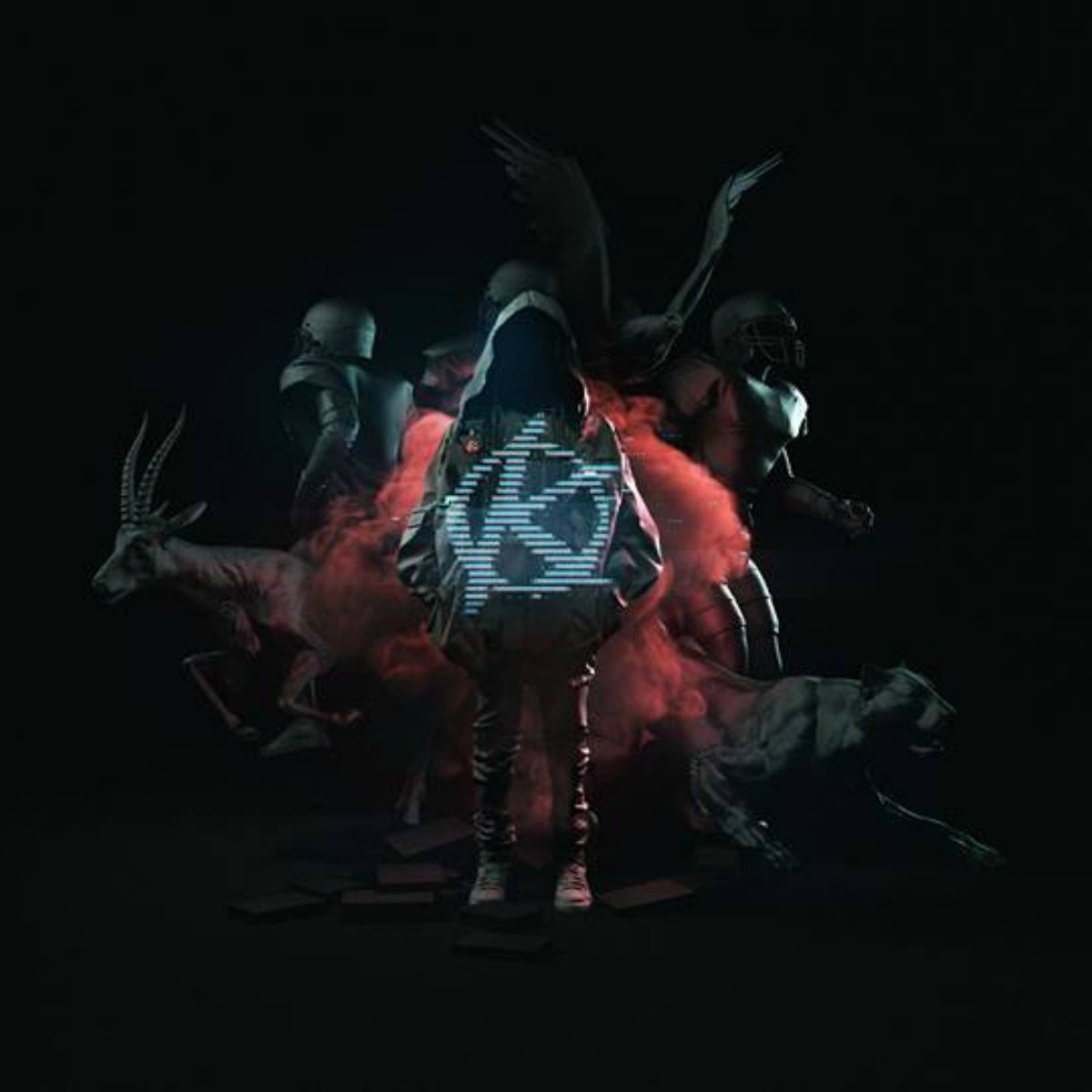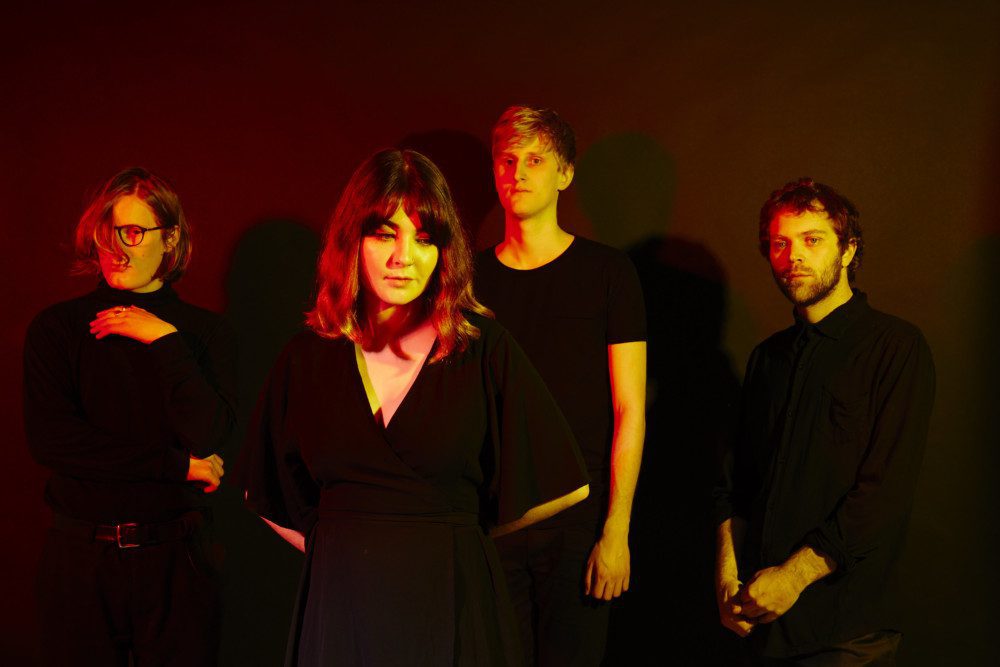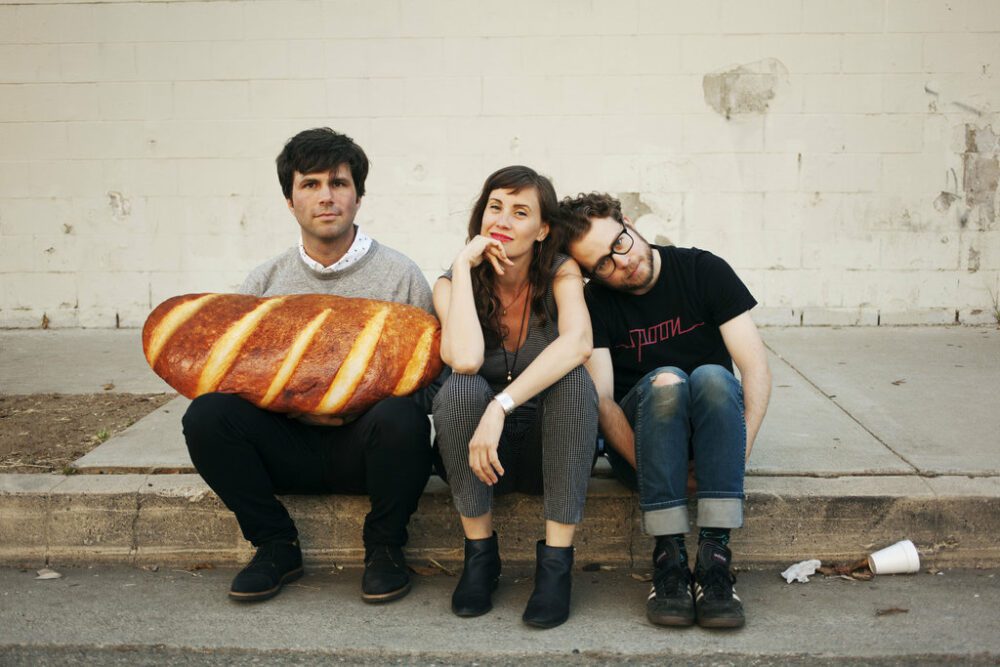
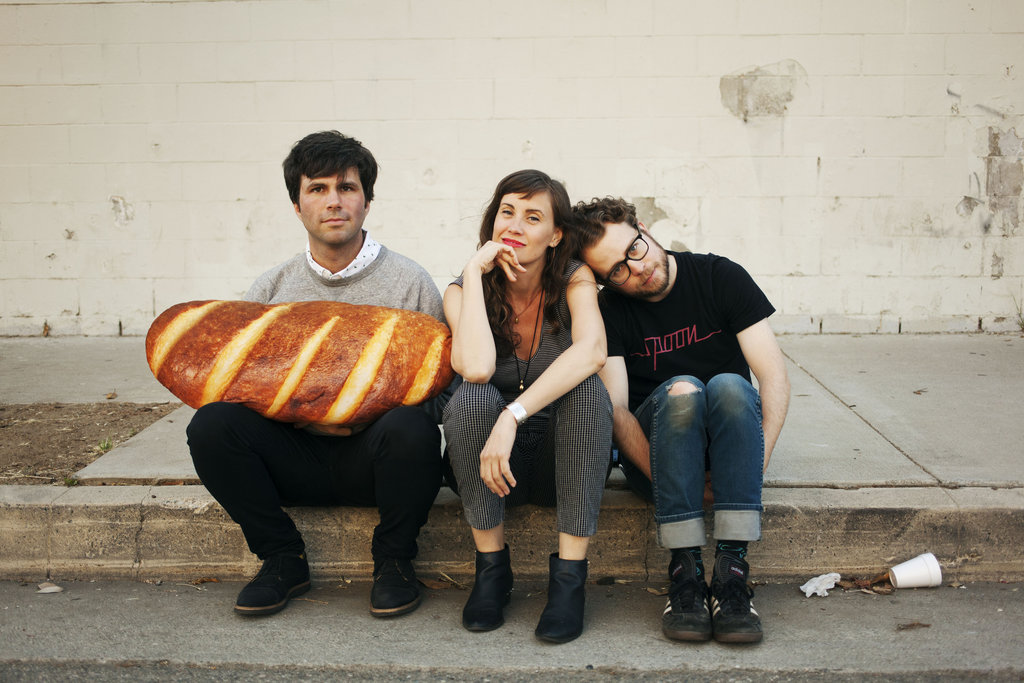
“Listen to your heart (no)/keep on keeping on (no)/just say no to drugs (no)/eat a healthy lunch (no),” goes the chorus of “‘Listen To Your Heart.’ ‘No.'” It’s the first song on Emphatically No., the sophomore LP from LA-based indie rock trio Cheekface, out today via New Professor. Guitarist/singer Greg Katz half-sings, half-speaks in an almost monotone voice, his deadpan delivery amplifying the humor of the lyrics, which encapsulate the spirit of the album: quirky comedy, rejection of conventional wisdom, and defiance, sometimes for its own sake.
The fun, upbeat song, like much of the album, was written partly in earnest and partly as a joke. The earnest aspect was borne from bassist/singer Amanda Tannen’s difficulties saying “no” and drawing boundaries. “‘Listen to Your Heart.’ ‘No.’ came about from feeling this rise in self-care and all these people just telling you what to do, what’s best for you, and it’s actually okay to say ‘no’ to those things if you’re not feeling that,” she says.
The title of the song, however, first came from Katz. It had been lingering in his notebook for a while, then he blurted it out while working on guitar chords with Tannen, and she immediately identified it as the foundation of a song. “That response of ‘no’ just to this generic good advice that you would give anyone, and then the automatic impulse of disgust and refusal even though you know the advice is pretty good — it just has that spark of truth and humor that we try to find to build a song around,” he says.
It’s a silly yet oddly empowering message: no matter how reasonable, even irrefutable someone’s advice is, you still don’t have to take it. This is also the attitude behind the album title and much of the music on it. “We’re all always trying to be better about boundaries,” says drummer Mark “Echo” Edwards. “I have a hard time telling people no, and so it’s a reminder, it’s like a little mantra to repeat to yourself that it’s okay to say no, and a lot of times, it’s better to say no.”
The next song on the album, “Best Life,” has a similar theme of rejecting self-care culture, taking the listener through various scenes as the narrator laughs through therapy, declines to smile because it may be contagious (but “so is yawning”), and gets a Gucci logo stick-and-poke because “it’s cheaper than therapy,” melodically concluding, “it’s your best life if it’s the life that you’re living right now.”
“The concept of living your best life is something that I have always thought was sort of funny because there is no other life than the one you are now living — there’s no better or worse version of it; it just is,” says Katz. “The whole memeification of mental health and self-help by our generation, which distilled it down to meaningless drivel like ‘best life’ that has literally no meaning when you think about it, was sort of the jumping-off point for the concept of the song.”
Other songs on the LP examine heavier cultural and political issues, but still with the same absurdist humor: “Original Composition” addresses humans’ indifference to environmental collapse, “(I Don’t Want to Go to) Calabasas” calls attention to the hypocrisy of political discourse, and “Big Big Friend” mocks male privilege with lines like “I earned a dude’s degree/by buying a notebook and sneezing on my things/I come from a long line of people/a long line of people who procreated.”
Most of Emphatically No. was recorded and mixed by Greg Cortez at LA’s New Monkey Studio (which was formerly owned by Elliott Smith) between 2019 and 2020. The album incorporates electronic instruments like the Mellotron and eccentric sound bites like a dog barking, aggressive banging on a keyboard, and repetitive, chanted words like “everything is normal.”
“My goal musically is to make things feel good and make people want to move in a way that lines up with the larger philosophical approach,” says Edwards. “Despite the sometimes bleak subject matter, there’s still humor, there’s still joy.”
Katz considers Cheekface a mix of punk rock, power pop, and proto punk, citing the “great American talk-singers,” like Lou Reed and Jonathan Richman, as influences – you can hear it the way Katz sings the lines “we are writers! creatives! we work remotely!/I am furiously Juuling™ on the coffee shop patio!” in “Best Life.” The Talking Heads are also a band favorite; “Emotional Rent Control” incorporates the bass line and drum parts from “Psycho Killer,” an idea the members got after hearing these familiar sounds sampled in Selena Gomez’s “Bad Liar.”
Cheekface originated in 2017, drawing its early inspiration from Trump’s inauguration. After attending the Women’s March together, Katz and Tannen wrote their second single and most streamed song on Spotify, “Dry Heat/Nice Town,” about coming to grips with rising authoritarianism and violence in society. The band released its first album, Therapy Island, in 2019, and released an Audiotree live session in 2020. They’ve already written the bulk of their next album, though Katz warns his fans: “Just like everyone’s favorite band, we’re gonna get worse.”
Follow Cheekface on Twitter for ongoing updates.

